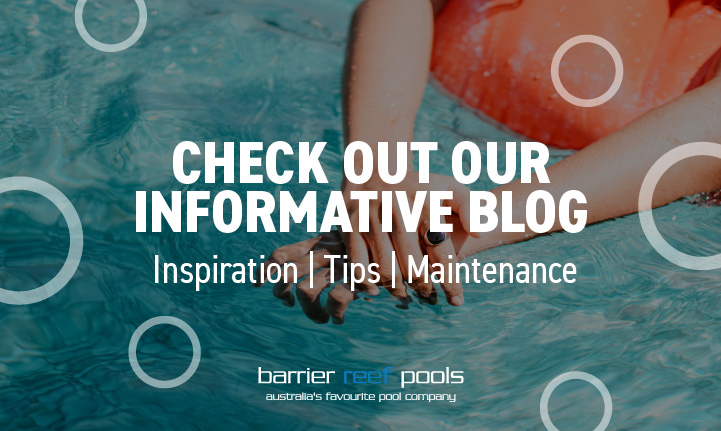Tips For First-Time Pool Owners
Owning a pool is one of the most rewarding investments you can make for your home. It's a source of endless fun, relaxation, and a great way to stay fit. Imagine spending hot summer days lounging by the water, hosting pool parties with friends and family, and enjoying serene, moonlit swims. However, with the joys of pool ownership come responsibilities that first-time pool owners must be prepared for. This guide will walk you through essential preparations such as choosing the right pool design, understanding water chemistry, and investing in proper equipment. Additionally, we will provide maintenance tips to keep your pool clean and safe, ways to maximise your enjoyment with fun poolside activities, and sustainable practices to ensure your pool remains a delightful oasis for years to come. From regular cleaning schedules to eco-friendly heating options, every aspect of pool care will be covered to help you create the perfect backyard retreat.
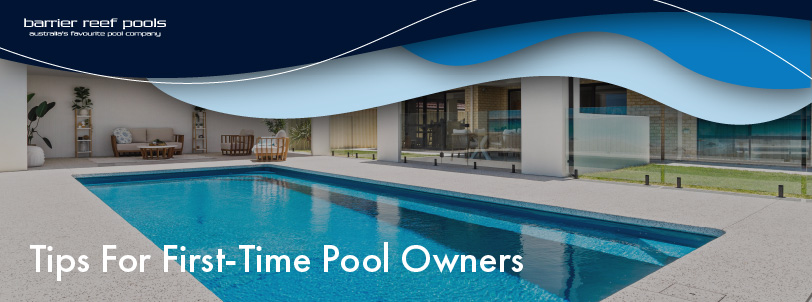
Essential Preparations
Budgeting for Pool Maintenance and Operation
Owning a pool isn’t just a one-time expense; it comes with ongoing costs. Start by creating a budget that includes:
- Routine Maintenance: Regular cleaning, water testing, and chemical treatments.
- Operational Costs: Electricity for pumps and heaters, water for refilling.
- Repairs and Upgrades: Unexpected repairs and future upgrades or replacements.
Understanding these costs upfront can save you from unexpected financial surprises and allow you to enjoy your pool stress-free.
Understanding Local Pool Regulations and Safety Guidelines
Before diving in, ensure you’re familiar with local regulations and safety guidelines. These may include:
- Fencing Requirements: Many areas require pools to be enclosed by a fence to prevent accidental drownings.
- Permits and Inspections: Check if you need any permits to build or operate your pool.
- Safety Equipment: Ensure you have life-saving equipment like flotation devices, a first aid kit, and a pool cover.
Choosing the Right Type of Pool for Your Needs and Space
Pools come in various shapes and sizes, so choose one that suits your needs and fits your space:
- In-ground vs. Above-ground: In-ground pools are more permanent and can add value to your home, but they are also more expensive. Above-ground pools are more affordable and easier to install.
- Material: Options include concrete, vinyl, and fibreglass. Each has its pros and cons in terms of cost, durability, and maintenance.
- Shape and Size: Consider how you plan to use your pool. Lap pools are great for exercise, while kidney-shaped pools offer a more aesthetic, relaxing space.
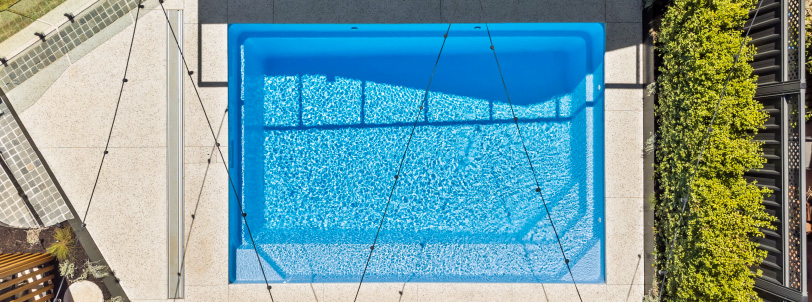
Tips for Pool Maintenance
Regular Cleaning and Water Testing
To keep your pool sparkling clean and safe to swim in, follow these steps:
- Skimming and Scrubbing: Skim the surface daily to remove debris, and scrub the sides to prevent algae build-up.
- Vacuuming: Use a pool vacuum weekly to clean the bottom of the pool.
- Water Testing: Test your pool water at least once a week for pH levels, chlorine, and alkalinity. Adjust chemicals as needed to maintain balance.
Seasonal Considerations for Pool Care
Different seasons require different care routines:
- Summer: Increased use means more frequent cleaning and chemical adjustments.
- Winter: If you’re not using your pool, consider investing in a pool cover to keep debris out and reduce evaporation.
- Spring and Autumn: These are ideal times for thorough inspections and repairs, ensuring everything is in top shape for peak swimming season.
Troubleshooting Common Pool Problems
Even with regular maintenance, you may encounter issues such as:
- Cloudy Water: Often caused by imbalanced chemicals or poor filtration. Test the water and clean the filter.
- Algae Growth: Scrub affected areas, shock the pool with a high dose of chlorine, and run the filter continuously until clear.
- Low Water Levels: Check for leaks and repair them promptly. Refill the pool to maintain proper levels for filtration.
Maximising Enjoyment
Setting Up a Relaxing Poolside Space
Create a paradise around your pool with:
- Comfortable Seating: Invest in lounge chairs, hammocks, and shaded areas.
- Decor: Add potted plants, outdoor lighting, and water features to enhance the ambience.
- Entertainment: Consider installing an outdoor sound system or setting up a BBQ area for ultimate relaxation.
Safety Measures for Pool Use
Ensure everyone enjoys the pool safely by:
- Supervision: Always have an adult present when children are swimming.
- Swimming Lessons: Teach children and non-swimmers basic swimming skills and water safety.
- Emergency Plan: Have a clear plan in case of accidents, including CPR training and emergency contact numbers.
Hosting Pool Parties and Family Events
Pool parties are a great way to make memories:
- Plan Ahead: Send out invitations, plan a menu, and set up activities like pool games or a mini bar.
- Safety First: Designate a lifeguard for the event, and ensure guests follow safety rules.
- Clean Up: Keep extra towels and a cleaning station handy for post-party tidying.
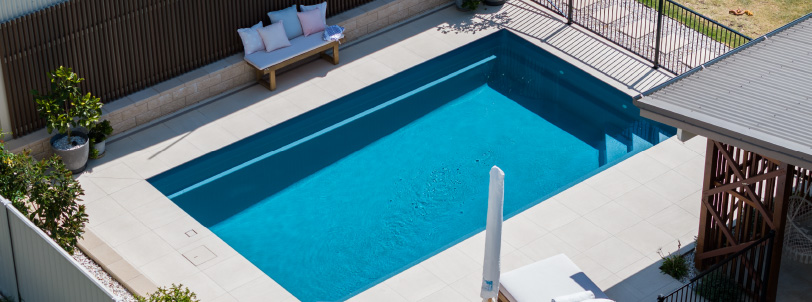
Sustainability and Energy Efficiency
Choosing Eco-Friendly Pool Products and Practices
Make your pool more eco-friendly with these tips:
- Chemical Alternatives: Use non-toxic cleaners and consider natural pool systems that use plants and biological filters.
- Solar Heating: Install solar panels to heat your pool, reducing energy consumption.
- Efficient Pumps: Opt for variable-speed pumps, which use less energy than traditional single-speed models.
Tips for Reducing Water and Energy Consumption
Minimise your pool’s environmental impact by:
- Covering the Pool: A cover reduces evaporation and keeps the pool cleaner, cutting down on the need for chemicals.
- Regular Maintenance: Well-maintained equipment runs more efficiently, saving water and energy.
- Smart Landscaping: Plant drought-resistant plants around your pool to reduce water use and create natural shade.
Owning a pool is a wonderful experience, filled with fun and relaxation. By following these tips, you can ensure your pool remains a safe, clean, and enjoyable haven for you and your family. Remember to budget for maintenance, understand local regulations, and choose the right pool for your needs. Regular cleaning, seasonal care, and troubleshooting common problems will keep your pool in top condition. Maximise your enjoyment with a well-designed poolside space, safety measures, and hosting memorable events. Finally, embrace sustainability to reduce your pool’s environmental impact.
If you found these tips helpful, share this post with other first-time pool owners. For more expert advice and tips on pool ownership, subscribe to our newsletter and never miss an update. Dive into the world of pool ownership with confidence and make the most of your backyard oasis!
Tips For First-Time Pool Owners
Owning a pool is one of the most rewarding investments you can make for your home. It's a source of endless fun, relaxation, and a great way to stay fit. Imagine spending hot summer days lounging by the water, hosting pool parties with friends and family, and enjoying serene, moonlit swims. However, with the joys of pool ownership come responsibilities that first-time pool owners must be prepared for. This guide will walk you through essential preparations such as choosing the right pool design, understanding water chemistry, and investing in proper equipment. Additionally, we will provide maintenance tips to keep your pool clean and safe, ways to maximise your enjoyment with fun poolside activities, and sustainable practices to ensure your pool remains a delightful oasis for years to come. From regular cleaning schedules to eco-friendly heating options, every aspect of pool care will be covered to help you create the perfect backyard retreat.
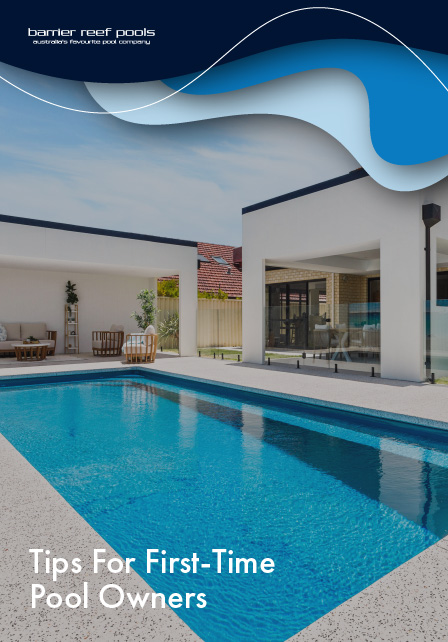
Essential Preparations
Budgeting for Pool Maintenance and Operation
Owning a pool isn’t just a one-time expense; it comes with ongoing costs. Start by creating a budget that includes:
- Routine Maintenance: Regular cleaning, water testing, and chemical treatments.
- Operational Costs: Electricity for pumps and heaters, water for refilling.
- Repairs and Upgrades: Unexpected repairs and future upgrades or replacements.
Understanding these costs upfront can save you from unexpected financial surprises and allow you to enjoy your pool stress-free.
Understanding Local Pool Regulations and Safety Guidelines
Before diving in, ensure you’re familiar with local regulations and safety guidelines. These may include:
- Fencing Requirements: Many areas require pools to be enclosed by a fence to prevent accidental drownings.
- Permits and Inspections: Check if you need any permits to build or operate your pool.
- Safety Equipment: Ensure you have life-saving equipment like flotation devices, a first aid kit, and a pool cover.
Choosing the Right Type of Pool for Your Needs and Space
Pools come in various shapes and sizes, so choose one that suits your needs and fits your space:
- In-ground vs. Above-ground: In-ground pools are more permanent and can add value to your home, but they are also more expensive. Above-ground pools are more affordable and easier to install.
- Material: Options include concrete, vinyl, and fibreglass. Each has its pros and cons in terms of cost, durability, and maintenance.
- Shape and Size: Consider how you plan to use your pool. Lap pools are great for exercise, while kidney-shaped pools offer a more aesthetic, relaxing space.
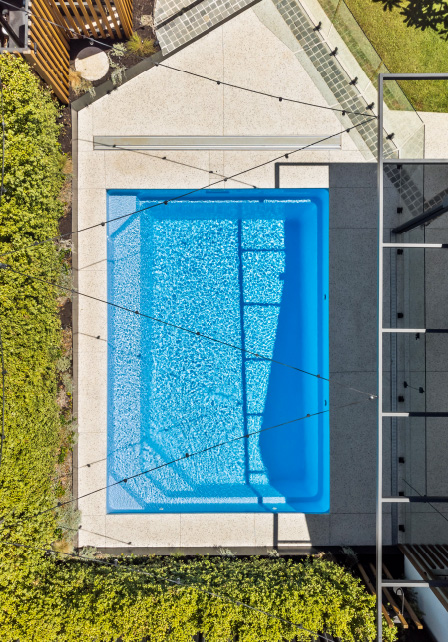
Tips for Pool Maintenance
Regular Cleaning and Water Testing
To keep your pool sparkling clean and safe to swim in, follow these steps:
- Skimming and Scrubbing: Skim the surface daily to remove debris, and scrub the sides to prevent algae build-up.
- Vacuuming: Use a pool vacuum weekly to clean the bottom of the pool.
- Water Testing: Test your pool water at least once a week for pH levels, chlorine, and alkalinity. Adjust chemicals as needed to maintain balance.
Seasonal Considerations for Pool Care
Different seasons require different care routines:
- Summer: Increased use means more frequent cleaning and chemical adjustments.
- Winter: If you’re not using your pool, consider investing in a pool cover to keep debris out and reduce evaporation.
- Spring and Autumn: These are ideal times for thorough inspections and repairs, ensuring everything is in top shape for peak swimming season.
Troubleshooting Common Pool Problems
Even with regular maintenance, you may encounter issues such as:
- Cloudy Water: Often caused by imbalanced chemicals or poor filtration. Test the water and clean the filter.
- Algae Growth: Scrub affected areas, shock the pool with a high dose of chlorine, and run the filter continuously until clear.
- Low Water Levels: Check for leaks and repair them promptly. Refill the pool to maintain proper levels for filtration.
Maximising Enjoyment
Setting Up a Relaxing Poolside Space
Create a paradise around your pool with:
- Comfortable Seating: Invest in lounge chairs, hammocks, and shaded areas.
- Decor: Add potted plants, outdoor lighting, and water features to enhance the ambience.
- Entertainment: Consider installing an outdoor sound system or setting up a BBQ area for ultimate relaxation.
Safety Measures for Pool Use
Ensure everyone enjoys the pool safely by:
- Supervision: Always have an adult present when children are swimming.
- Swimming Lessons: Teach children and non-swimmers basic swimming skills and water safety.
- Emergency Plan: Have a clear plan in case of accidents, including CPR training and emergency contact numbers.
Hosting Pool Parties and Family Events
Pool parties are a great way to make memories:
- Plan Ahead: Send out invitations, plan a menu, and set up activities like pool games or a mini bar.
- Safety First: Designate a lifeguard for the event, and ensure guests follow safety rules.
- Clean Up: Keep extra towels and a cleaning station handy for post-party tidying.
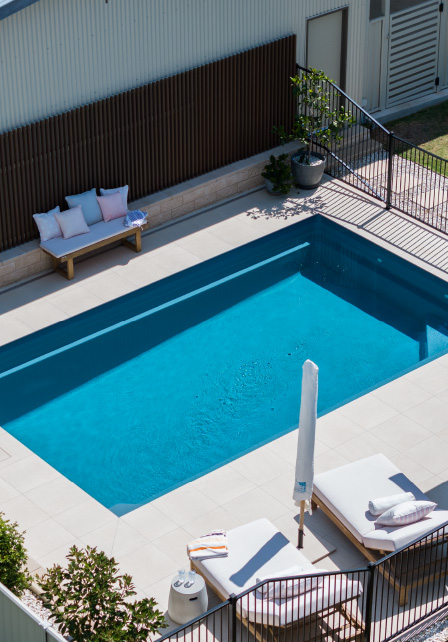
Sustainability and Energy Efficiency
Choosing Eco-Friendly Pool Products and Practices
Make your pool more eco-friendly with these tips:
- Chemical Alternatives: Use non-toxic cleaners and consider natural pool systems that use plants and biological filters.
- Solar Heating: Install solar panels to heat your pool, reducing energy consumption.
- Efficient Pumps: Opt for variable-speed pumps, which use less energy than traditional single-speed models.
Tips for Reducing Water and Energy Consumption
Minimise your pool’s environmental impact by:
- Covering the Pool: A cover reduces evaporation and keeps the pool cleaner, cutting down on the need for chemicals.
- Regular Maintenance: Well-maintained equipment runs more efficiently, saving water and energy.
- Smart Landscaping: Plant drought-resistant plants around your pool to reduce water use and create natural shade.
Owning a pool is a wonderful experience, filled with fun and relaxation. By following these tips, you can ensure your pool remains a safe, clean, and enjoyable haven for you and your family. Remember to budget for maintenance, understand local regulations, and choose the right pool for your needs. Regular cleaning, seasonal care, and troubleshooting common problems will keep your pool in top condition. Maximise your enjoyment with a well-designed poolside space, safety measures, and hosting memorable events. Finally, embrace sustainability to reduce your pool’s environmental impact.
If you found these tips helpful, share this post with other first-time pool owners. For more expert advice and tips on pool ownership, subscribe to our newsletter and never miss an update. Dive into the world of pool ownership with confidence and make the most of your backyard oasis!

